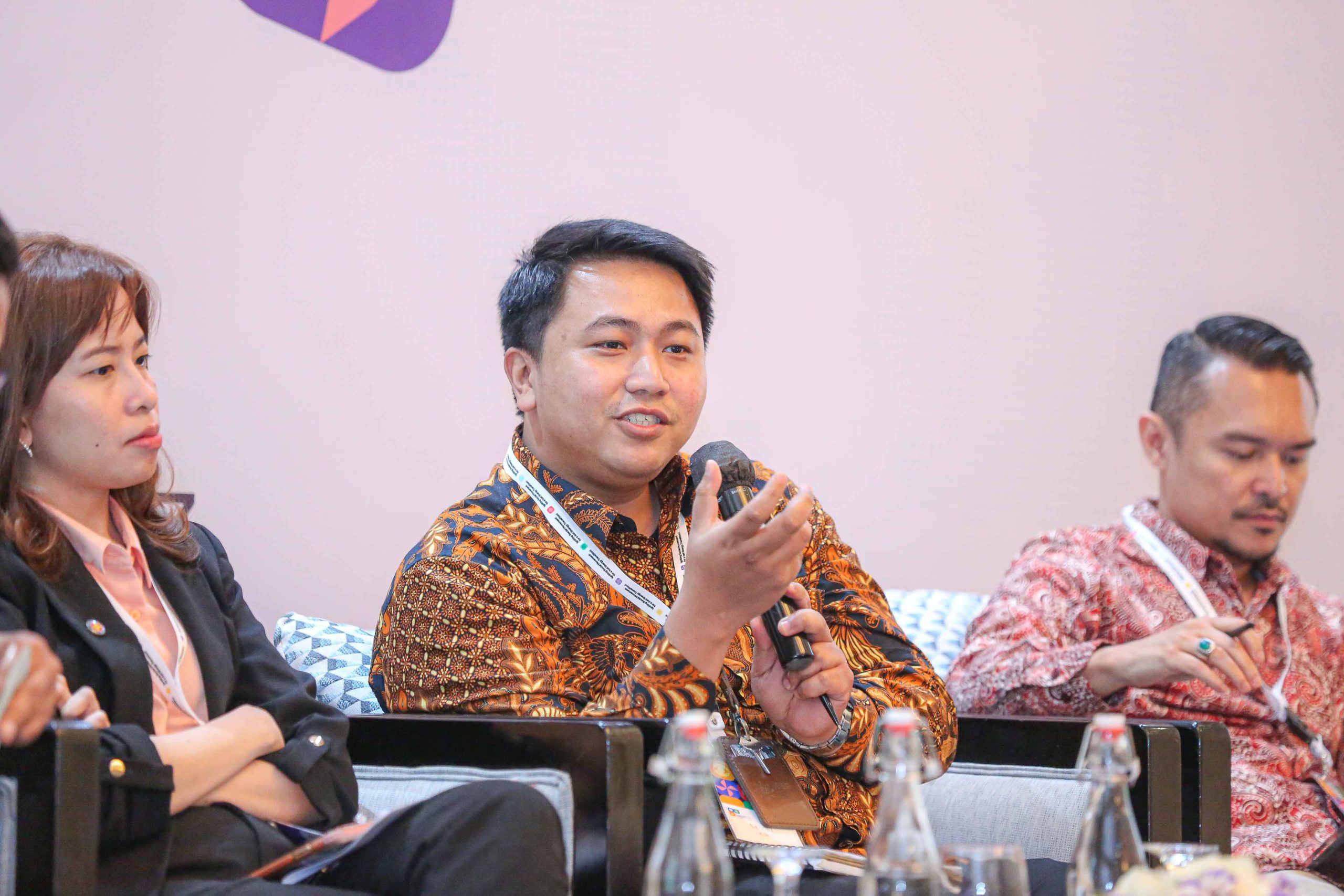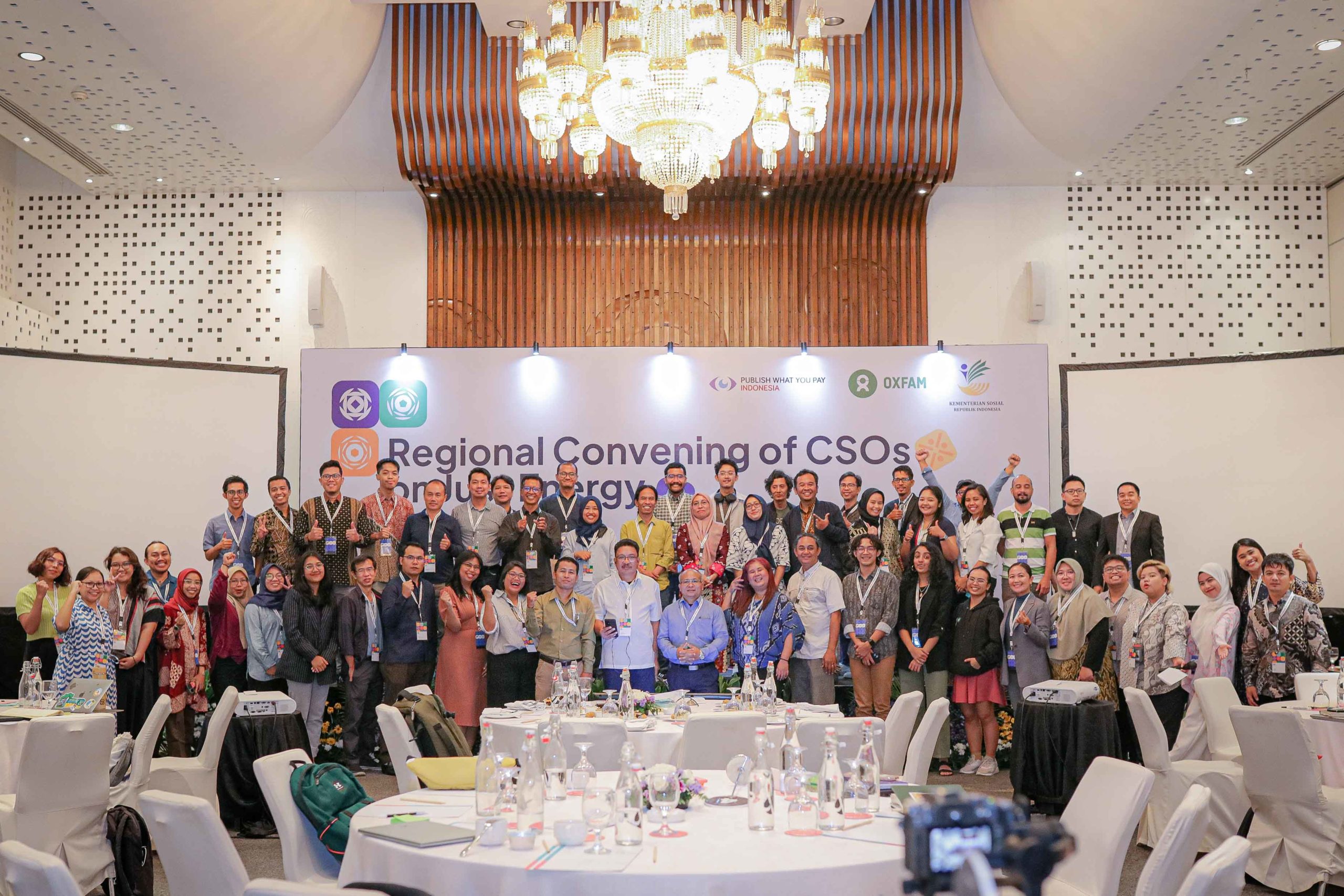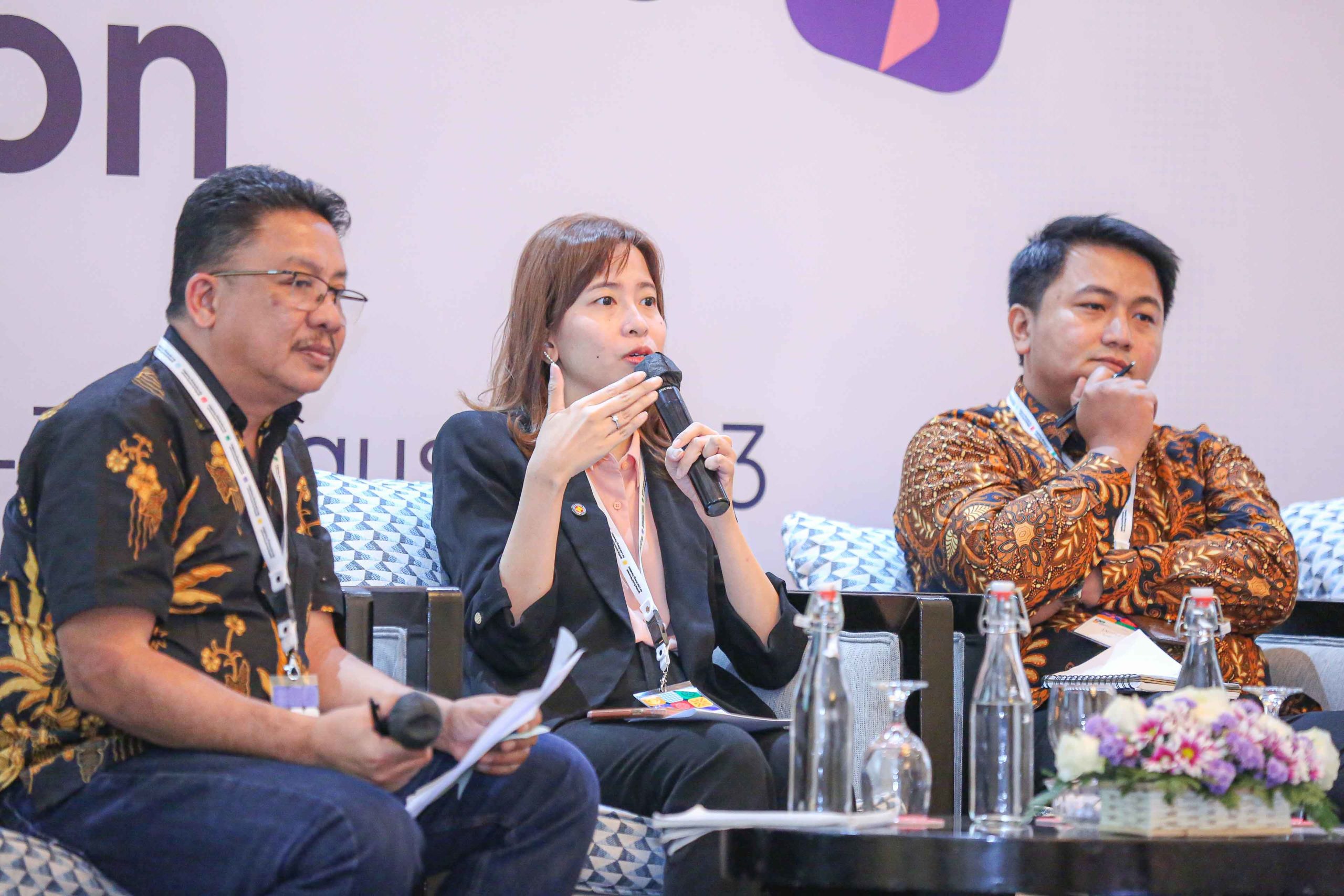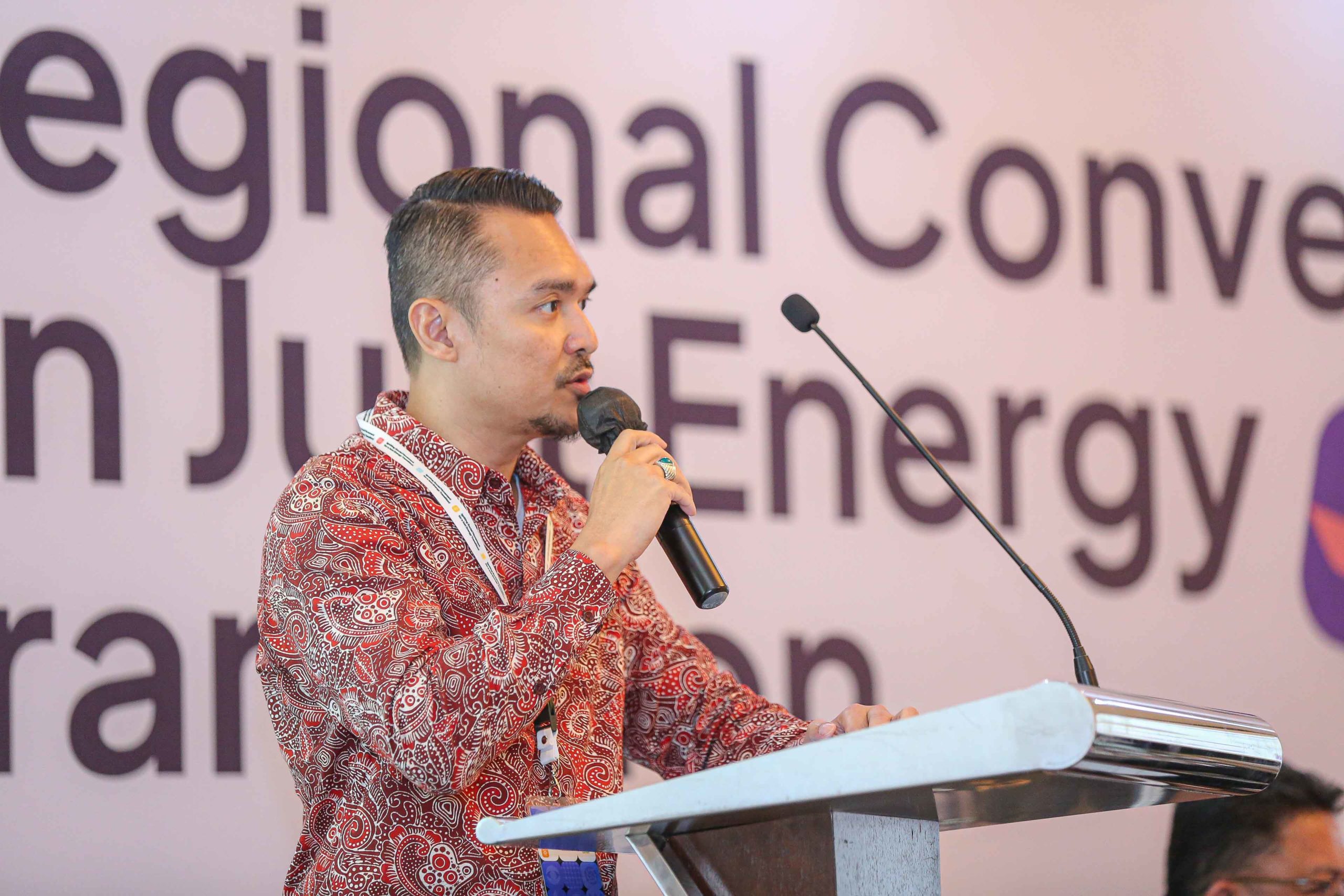Jakarta – Publish What You Pay (PWYP) Indonesia, supported by Oxfam in Indonesia, organized a regional meeting of civil society organizations for Southeast Asia on the fair energy transition in Jakarta from 29 to 31 August 2023. More than just a meeting, it is a meeting of minds, a fusion of experiences, and evidence of the commitment of civil society organizations (CSOs), governments, and policymakers to chart a course towards a sustainable and equitable future collaboratively, especially in Southeast Asia.
In the heart of Southeast Asia, a sea change is underway—a shift from dirty fossil fuels to cleaner energy and a more equitable and just energy system. The region comprises many countries and is at a critical juncture in its journey towards economic and climate justice. This journey, known as the Just Energy Transition (JET), is expected to change the course of energy production, consumption, and conservation while safeguarding the environment and promoting social welfare.
Why is a Just Energy Transition so crucial for countries in the region? The answer lies in its far-reaching consequences. Decisions on energy production, consumption, and greenhouse gas mitigation will resonate over time, shaping the availability of energy resources, global emissions, and the environment we pass on to future generations.
With a young population, countries in the Southeast Asian region have unique assets for economic growth. However, this demographic advantage also underscores the urgency of investing in renewable energy. As the fossil fuel industry declines, countries in the region must create new clean energy jobs that can drive economic growth and do so fairly and equitably, leaving no one behind.
In addition, countries in the region cannot ignore the disproportionate impacts of climate change on marginalized communities, indigenous peoples, and those living in poverty. Just Energy Transition is a commitment to ensure that these communities cannot only weather the storm of climate change but also benefit from the transition to a clean energy future.
The momentum towards clean energy in Southeast Asian countries is undeniable. The rising cost of fossil fuels, growing awareness of the climate crisis, and the proliferation of clean energy technologies have been the starting points for transformation. The Association of Southeast Asian Nations (ASEAN) Energy Cooperation Plan 2021-2025 is a testament to the region’s commitment, outlining ambitious targets, including a 25% reduction in greenhouse gas emissions by 2030.
Civil Society Organizations (CSOs) are central to this transition as drivers of advocacy, education, and support. CSOs have emerged as key players, advocating for policies that promote clean energy use, protect workers and communities, and address the uneven impacts of climate change. They educate the public about the benefits and challenges of a Just Energy Transition and provide critical resources and advocacy to affected communities.
Collaboration is essential to ensure a fair and just transition. Governments, civil society organizations, and policymakers must engage in ongoing dialogue and coordination. The voices and needs of workers, communities, and marginalized groups must be at the forefront of decision-making.
The CSO Regional Meeting on the Just Energy Transition is our platform for dialogue, action, and collaboration with over 70 CSO representatives working in the energy and climate change sectors:
Discuss RET Narratives at the Country Level to explore the unique experiences of Southeast Asian countries in their RET journeys and foster a deeper understanding of the regional landscape.
Explore challenges and opportunities: uncover challenges and opportunities in implementing the Just Energy Transition nationally through in-depth discussions. Promoting collaboration at the regional level: mapping out a roadmap for working together at the regional level. Collaboration among CSOs will be the cornerstone of this effort to strengthen our collective impact.
The first day of the CSO regional meeting began with a Public Discussion titled “Energy Landscape in ASEAN,” which presented several speakers including Muhammad Alhaqurahman Isa, representative of the Directorate General of Renewable Energy and Energy Conservation (EBTKE), Ministry of Energy and Mineral Resources (ESDM), Aldilla Noor Rakhiemah, Senior Officer of Power, Fossil Fuel, and Alternative Storage, ASEAN Center for Energy and Deon Arinaldo, Energy Transformation Program Manager, Institute for Essential Services Reform, and moderated by Shubert Ciencia, Influencing Coordinator for GRAISEA, Oxfam in Asia.
Aldilla explained that ASEAN is a significant region, comprising 8.7% of the world’s population, with a total population expected to reach 792 million by 2050. The area has experienced average Gross Domestic Product (GDP) growth of 4.7%, which correlates with growing energy demand. The ASEAN Energy Outlook predicts higher energy demand by 2050, mainly driven by economic growth. Unfortunately, even considering various scenarios, including energy policies and Nationally Determined Contribution (NDC) targets, fossil fuels still dominate ASEAN’s energy sector, increasing greenhouse gas emissions.
“ASEAN has an energy cooperation blueprint to address these challenges, and the current phase, known as Phase Two, covers 2021 to 2025. The theme is accelerating the energy transition and strengthening energy security through innovation and cooperation. The policy aims to achieve energy security but also accessibility, affordability, and sustainability. By 2025, ASEAN targets renewable energy to reach 23% of total primary energy. In recent meetings, ASEAN ministers have emphasized a just transition, highlighting the importance of inclusiveness and sustainability“, Aldilla added.
In addition, challenges that ASEAN needs to address in the region include strengthening the deployment of renewable energy technologies, diversifying energy sources, improving grid interconnection, securing significant investment, ensuring policy coherence, expanding regional integration beyond the grid, strengthening international partnerships, and securing a place in the global supply chain.
Unfortunately, there is no formal platform for CSOs to engage directly with ASEAN. Establishing an official platform to facilitate communication between CSOs and the government would be beneficial. Such a platform can help convey CSO aspirations and serve as a bridge for collaboration. Meanwhile, there is an unofficial platform known as the ASEAN Energy Committee, which can serve as a communication channel for conventions, studies, and discussions related to energy in the region. This unofficial platform can initiate dialogue between civil society organizations and governments, thus encouraging collaboration.
Muhammad provided a perspective on the energy transition in Indonesia, where Indonesia has been actively addressing it. By 2022, Indonesia’s electrification ratio will reach 99.6%, and the country has made progress in renewable energy development. However, challenges still need to be addressed, such as balancing renewable energy potential with low demand in remote areas and the relatively high cost of renewable energy due to fossil fuel subsidies.
“With international support, Indonesia has set a target to reach net zero emissions by 2060 or sooner, aiming to reduce greenhouse gas emissions from the energy sector by 358 to 446 million tons of CO2 by 2030. To achieve this, Indonesia is focusing on utilizing renewable energy, including solar, wind, hydro, geothermal, and biomass, alongside measures such as hydrogen use and energy efficiency. Collaboration with the private sector is essential to secure the necessary investments“, Muhammad explained.
 Furthermore, Deon explained his views on the climate crisis and energy transition, stating that the world must significantly reduce greenhouse gas emissions to address the global climate crisis. Southeast Asia, with more than 50% of emissions from the energy sector, plays an important role. However, the gap between current policies and the required emission reductions is still considerable. Developing countries like those in Southeast Asia are vulnerable to the impacts of climate change. We must shift our energy mix towards renewable energy.
Furthermore, Deon explained his views on the climate crisis and energy transition, stating that the world must significantly reduce greenhouse gas emissions to address the global climate crisis. Southeast Asia, with more than 50% of emissions from the energy sector, plays an important role. However, the gap between current policies and the required emission reductions is still considerable. Developing countries like those in Southeast Asia are vulnerable to the impacts of climate change. We must shift our energy mix towards renewable energy.
“However, another major challenge is the trade balance, with many countries importing coal, oil, and gas, which can affect energy security. Despite the challenges, the renewable energy market is sizable in the region. Collaboration to create a regional renewable energy production market could be a game changer. Indonesia has the opportunity to learn from successful examples, such as the rapid increase of renewable energy capacity in Vietnam through policy support and tariff adjustments“, Deon concluded.
Author Raudatul Jannah
Reviewer: Aryanto Nugroho


